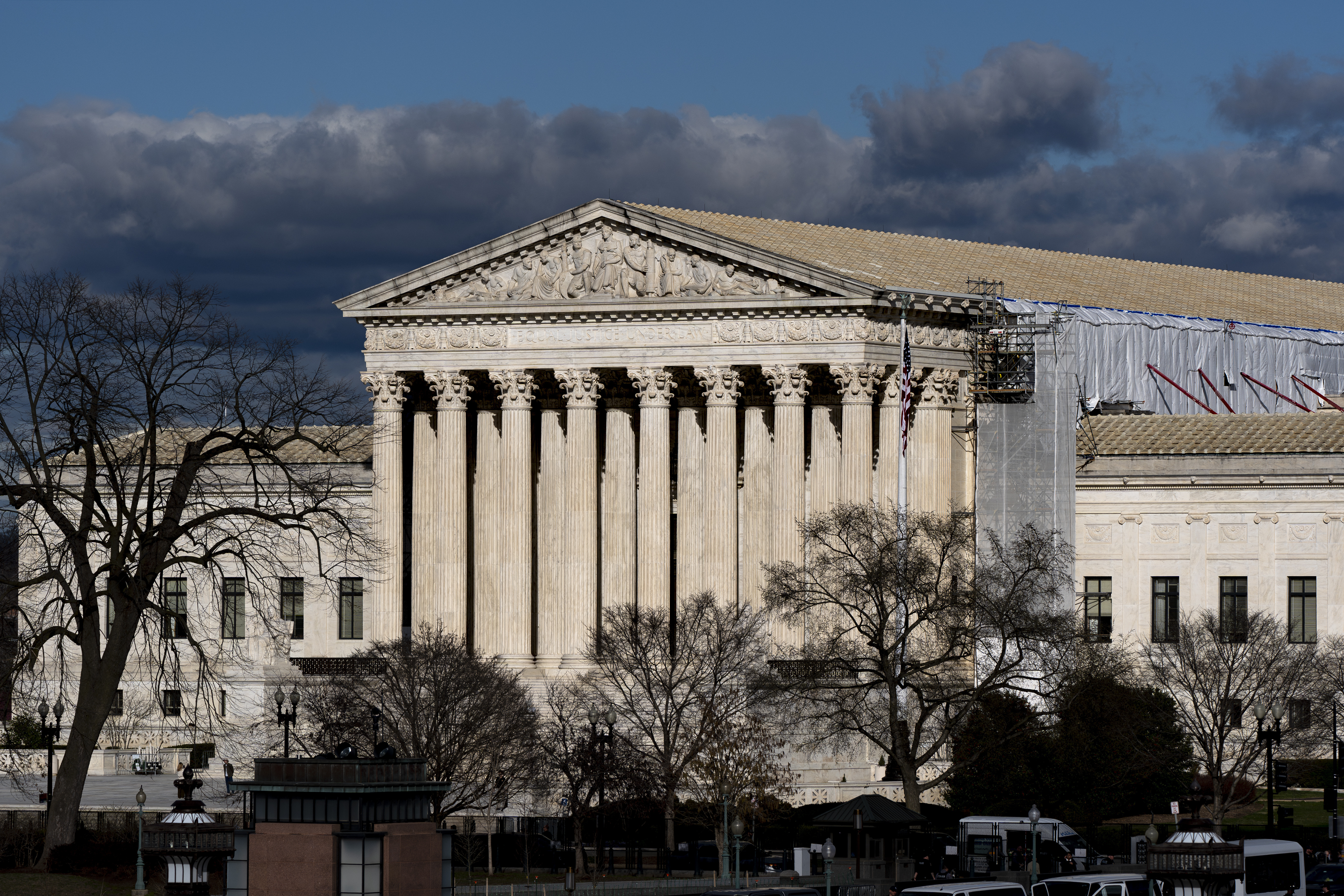President Donald Trump earned more than $150 million and paid $38 million in income taxes in 2005, paying a roughly 25 percent effective tax rate thanks to a tax he has since sought to eliminate, according to highly sought-after tax documents disclosed Tuesday night.
The two 1040 pages, which don’t include any itemized pages, from Trump's federal tax return, the first federal return to be seen by the public, show the then-real estate mogul also reported a business loss of $103 million that year, although the documents don't provide detail. The forms show that Trump paid an effective tax rate of 24.5 percent, a figure well above the roughly 10 percent the average American taxpayer forks over each year, but below the 27.4 percent that taxpayers earning 1 million dollars a year average, according to data from the Congressional Joint Committee on Taxation.
The form was obtained by journalist David Cay Johnston, Pulitzer prize-winning journalist who runs a website called DCReport.org, and reported on MSNBC's "The Rachel Maddow Show." Johnston, who has long reported on tax issues, said he received the documents in the mail, unsolicited.
"It is entirely possible that Donald leaked these to me," Johnston said. "Donald has a long history of leaking material about himself when he believes it's in his interest."
But to Trump, the forms were more "fake news," though a spokesperson verified the numbers reported on-air. Still, he cast doubt on the release in a tweet Wednesday morning, saying, "Does anybody really believe that a reporter, who nobody ever heard of, "went to his mailbox" and found my tax returns? @NBCNews FAKE NEWS!"
Johnston offered further commentary on the documents, saying, “You know who pays 24 percent in this country? Married couples like my wife and myself who make about $400,000 a year. Donald Trump and his wife made $400,000 a day."
Trump's hefty business loss appears to be a continued benefit from his use of a tax loophole in the 1990s, which allowed him to deduct previous losses in future years. In 1995, Trump reported a loss of more than $900 million, largely as a result of financial turmoil at his casinos.
U.S. & World
State tax records obtained by The New York Times last year showed the losses were so large they could have allowed Trump to avoid paying taxes for up to 18 years. But Trump's 2005 filing shows another tax prevented him from realizing the full benefit of those deductions.
The bulk of Trump's tax bill that year was due to the Alternative Minimum Tax, a tax aimed at preventing high-income earners from paying minimal taxes.
The AMT requires many taxpayers to calculate their taxes twice — once under the rules for regular income tax and then again under AMT — and then pay the higher amount. Critics say the tax has ensnared more middle-class people than intended, raising what they owe the federal government each year.
Were it not for the AMT, Trump would have avoided all but a few million dollars of his 2005 tax bill.
Trump's campaign website called for the end of the AMT, which is expected to bring in more than $350 billion in revenues from 2016 to 2025.
As a candidate and as president, Trump has refused to release his tax returns, breaking a decades-long tradition. Although he initially promised to do so, he later claimed he was under audit by the Internal Revenue Service and said his attorneys had advised against it — though experts and IRS officials said such audits don't bar taxpayers from releasing their returns.
The White House pushed back even before the release of the documents Tuesday night, saying that publishing the information was illegal.
"You know you are desperate for ratings when you are willing to violate the law to push a story about two pages of tax returns from over a decade ago," the White House said in a statement issued on condition that it be attributed to an anonymous official, although the president has decried the use of anonymous sources.
The unauthorized release or publishing of federal tax returns is a criminal offense, punishable by a fine of up to $5,000 and up to five years in jail. But Maddow argued that MSNBC was exercising its First Amendment right to publish information in the public interest.
An MSNBC spokesperson backed Maddow’s argument on Tuesday night, saying, “There is no legal prohibition against journalists publishing these tax returns. It is protected by the First Amendment and Supreme Court precedent.”
Trump long insisted the American public wasn't interested in his returns and said little could be learned from them. But Trump's full returns would contain key details about things like his charitable giving, his income sources, the type of deductions he claimed, how much he earned from his assets and what strategies Trump used to reduce his tax bill.
The issue was a major point of attack from his election rival Hillary Clinton, who suggested Trump had something to hide.
The White House has not said whether or not the president plans to release his returns while he's in office. More than 1 million people have signed a White House petition urging the president to release them.



